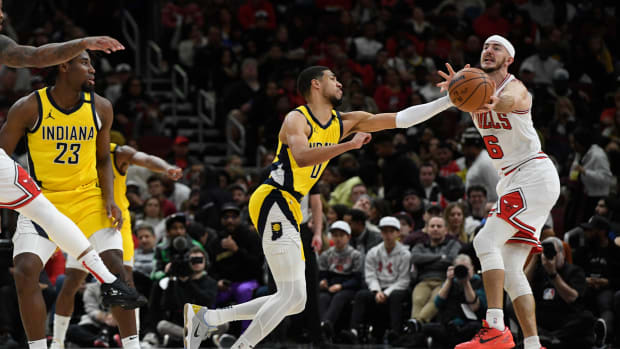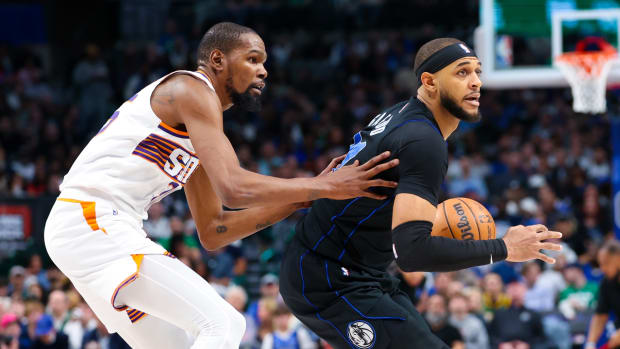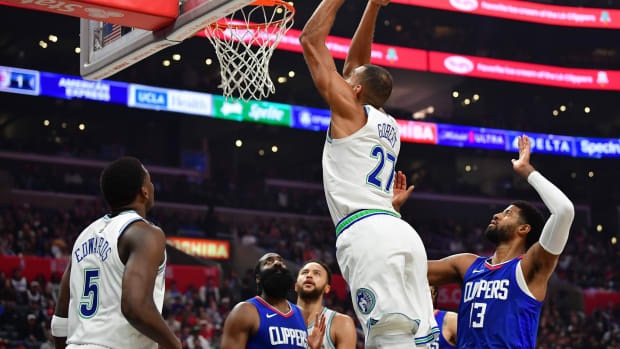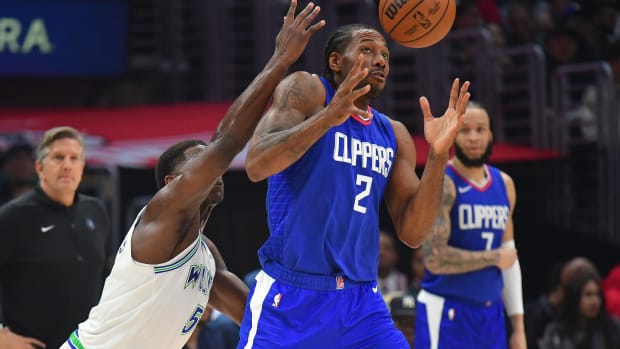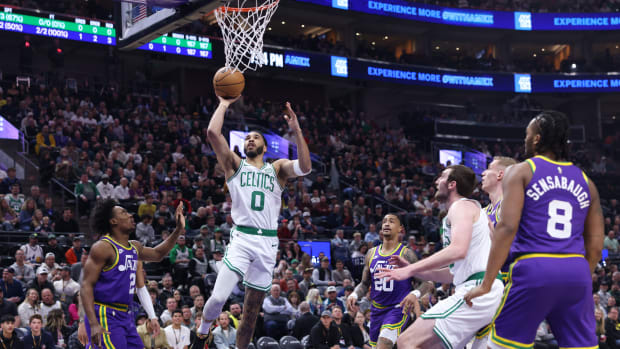Robert Sarver Will Soon Be Gone, but It’s Not Justice
For the purposes of his public profile, Robert Sarver will soon be reclassified from “NBA owner” to “former NBA owner,” and for that everyone in the league can be reasonably grateful. The Suns, their employees and the NBA at large will most assuredly be better off without an unrepentant sexist and office bully who dabbled in the use of the n-word, with no sense of shame or regret.
Sarver on Wednesday announced his intent to sell both the Suns and the WNBA’s Mercury, bowing to public pressure just one week after NBA commissioner Adam Silver dealt him a one-year ban and a $10 million fine following an internal investigation. The news was greeted with virtual cheers, in statements from LeBron James and CJ McCollum, from former Suns employees and from countless fans and pundits who were appalled by Sarver’s extensive history of misconduct.
Sarver will soon divest himself of the Suns, the NBA will divest itself of Sarver, and this latest ugly chapter involving a franchise owner will draw to a merciful close. It’s the right outcome, the just outcome. But let's not call it justice.
It took nearly 17 years of (largely unchecked) bad behavior for Sarver’s misdeeds to finally come to light, via a deeply reported ESPN story last November. It took another 10 months for the NBA’s investigation—conducted by the law firm Wachtell, Lipton, Rosen and Katz—to conclude, confirming the vast majority of the ESPN report. It took the willing participation of 300 current and former employees, in many cases risking their own job security and breaking NDAs to serve as whistleblowers.
A reminder of what they blew the whistle on, per the NBA’s 36-page report: Sarver repeatedly using the n-word, even after multiple employees told him it was inappropriate; Sarver suggesting an employee’s wife likely “gave good blow jobs”; Sarver declaring, “I hate diversity”; Sarver making remarks about the size of employees’ genitalia; Sarver forwarding pornographic material and sex jokes to male employees; Sarver telling a pregnant employee she wouldn’t be able to do her job effectively because she would soon be breastfeeding.
Even with all that, Silver could only summon the political will to issue a one-year suspension—an indication he lacked the support from the other 29 owners to go any further.
It’s to the NBA’s credit that it pursued a full investigation and that it released the findings to the public, in contrast to some other sports leagues. But this whole episode only underscored once more that the league, for all its progressive messaging, is just as flawed, morally conflicted and beholden to ultrawealthy, self-interested power brokers as any other multibillion-dollar enterprise.
Sarver is leaving under duress, sure, and in disgrace—but he is leaving voluntarily, not because of some virtuous system of jurisprudence.
It’s useful to remember that Donald Sterling, the detestable former owner of the Clippers, was not actually forced to sell his team after his racist ramblings became public in 2014. Yes, Silver did slap him with a lifetime ban that would have kept Sterling from running the team or attending games. But the sale—the actual separation of Sterling from the NBA—came about only because Sterling’s estranged wife, Shelly, had him declared mentally unfit and sold the team without his consent.
Remember, too, that the last NBA owner to sell his stake amid charges of racism—then Hawks owner Bruce Levenson, also in 2014—did so voluntarily, as well.
To be sure, the NBA’s swift and decisive action in the Sterling case did pave the way for his ouster, and was objectively the right move on both moral and business grounds. But even that decision came amid more powerful forces—players threatening to boycott playoff games, and corporate partners cutting ties or threatening to.
Once again, there are powerful external forces at work in pushing Sarver out. Last week, PayPal announced it would sever its relationship with the Suns if he remained majority owner. The sense in NBA circles was that other corporate partners might follow suit.
Three of the NBA’s biggest stars—James, Chris Paul and Draymond Green—had called for Sarver’s removal. So had the executive director of the players association, Tamika Tremaglio. With NBA teams all holding media days soon, there absolutely would have been (and might still be) an endless stream of negative headlines as more players step in front of TV cameras for the first time since the Sarver report dropped. Among those players? The entire roster of the Suns, who will meet the media Monday.
It’s safe to assume Sarver was getting pressured on all fronts—including from sponsors and players, from media and yes, from some fellow team owners and league officials—when he decided it was best to sell. (You can bet on all of that.)
Those pressures were evident in Sarver’s graceless announcement Wednesday, as he alluded to “our current unforgiving climate”—as if “cancel culture” was somehow responsible for his fate, rather than his years of abusive behavior. And he will profit greatly from his misdeeds, with the Suns estimated to be worth at least $1.8 billion. Sarver will be fine, which is more than can be said for so many of his former employees who felt threatened, insulted or degraded by him over the last 18 years.
Sarver will sell, and the NBA will breathe a sigh of relief. But did any part of this saga suggest the league is equipped to deal with the next Sarver? The next Sterling? Just a week ago, Silver had to concede that owners could get away with conduct that any other NBA employees could not. They can be fined and suspended, but they cannot be terminated.
The limits on Silver’s power mean there are limits to the league actually upholding the ideals and principles it so often trumpets. The league will claim to hold everyone in its community to the same standards, but in practice it does not. And unless the Board of Governors is willing to amend the NBA constitution and bylaws to make it easier to discipline—and when necessary, expel—owners, that doesn’t seem likely to change.
“I’m so proud to be a part of a league committed to progress!” LeBron tweeted excitedly Wednesday, after seeing the news.
It was a nice sentiment, an understandable reaction. Robert Sarver will soon be gone, and the cheers are warranted. But it’s circumstance, not justice.
More NBA Coverage:































